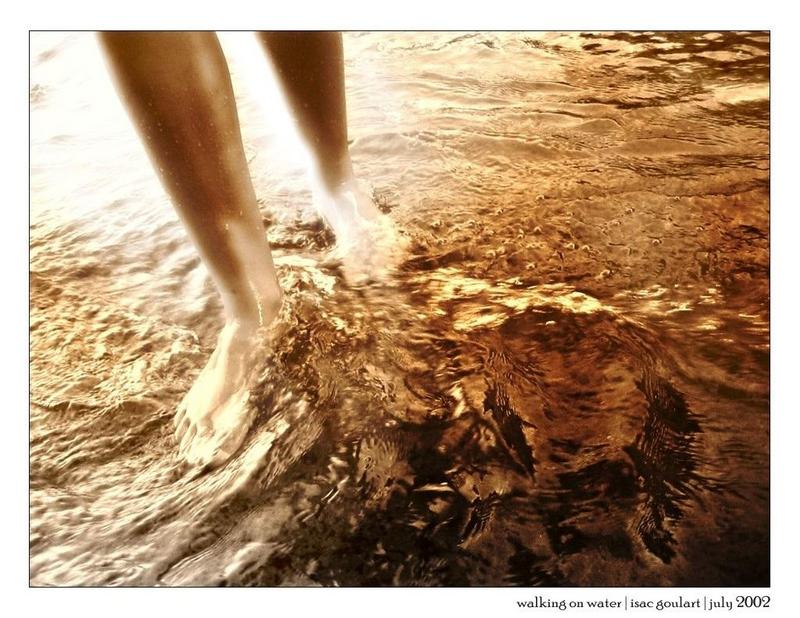 Last Monday was Labor Day, which spells the end of summer. It also anticipates the beginning of a new season, and for some of us, this week marks the start of a new academic year. Like any student, I am filled not only with excitement, but also with anxiety over what is to come, especially as I embark on my first year of doctoral studies in theology and education. What am I transitioning into? What will this season of my life yield?
Last Monday was Labor Day, which spells the end of summer. It also anticipates the beginning of a new season, and for some of us, this week marks the start of a new academic year. Like any student, I am filled not only with excitement, but also with anxiety over what is to come, especially as I embark on my first year of doctoral studies in theology and education. What am I transitioning into? What will this season of my life yield?
As I ponder on these questions, my attention is drawn to the image of Peter stepping out of the boat to walk on water toward Jesus in Matthew 14:22-33. In a sense, the anxious anticipation of something new carries within it an invitation for us to step out of our comfort zone into the unknown. To walk on water is to come out into the deep. It is to stumble into a borderless chaos wherein God is waiting to encounter us, though not in ways that we expect. As Matthew tells us, the disciples were “terrified” at Jesus walking on the sea as they thought that he was “a ghost.” (v. 26) Yet, Christ forms and transform us from within this borderless chaos, just as God creates the world from the expanse of unformed matter: “the earth was a formless void and darkness covered the face of the deep, while a wind from God swept over the face of the waters” (Genesis 1:2). In relation to my doctoral studies, to walk on water is to risk uncertainty and participate in the creative work of God’s Spirit who teaches me (cf. John 14:25). It is to tread on a path of knowing that continuously discerns to unlearn itself through an encounter with Christ who can disrupt, disturb and destabilize, thereby creating more room in my heart to welcome and love those different from me.
All of this takes courage. It is courage that emboldens Peter’s curiosity, stirring him to seek out the truth in the deep. “Lord, if it is you, command me to come to you on the water,” says Peter (v.28). Such courage dares to respond to the Lord’s call – “Come” (v.29). Yet, this courage is not a naïve human bravery that inflates our egos, as Peter soon realized when he “noticed the strong wind … became frightened, and [began] to sink” (v.30). Rather, it is courage that dares us to admit to our vulnerabilities (including our doubts), not to be bound by them but to entrust ourselves more and more to a faithful God who catches and holds us in the winds of change.
“You of little faith, why did you doubt?” Jesus says to Peter (v.31). As these words dwell in my heart, I do not hear a voice that reprimands. It is not a voice that admonishes me for doubting. Instead, I hear a voice that firmly invites me to deepen my faith in Christ in the midst of doubts that will come as I am led to walk out into a borderless chaos. It is a voice that encourages to give me courage – “Take heart, it is I; do not be afraid” (v. 27).
How about you? What might this borderless chaos be for you this coming season? And how do you hear this voice of Christ as you imagine yourself to be someone like Peter? What encourages you and what challenges?
This is the first post from one of six new regular contributors. Learn more about them here.








